Related Research Articles
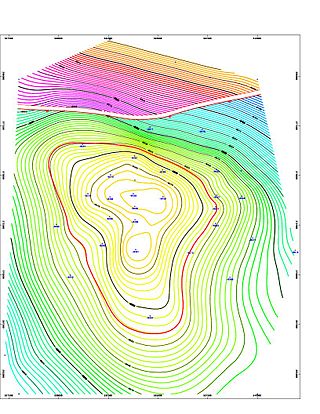
Petroleum engineering is a field of engineering concerned with the activities related to the production of Hydrocarbons, which can be either crude oil or natural gas. Exploration and production are deemed to fall within the upstream sector of the oil and gas industry. Exploration, by earth scientists, and petroleum engineering are the oil and gas industry's two main subsurface disciplines, which focus on maximizing economic recovery of hydrocarbons from subsurface reservoirs. Petroleum geology and geophysics focus on provision of a static description of the hydrocarbon reservoir rock, while petroleum engineering focuses on estimation of the recoverable volume of this resource using a detailed understanding of the physical behavior of oil, water and gas within porous rock at very high pressure.

Rudolf Emil Kálmán was a Hungarian-American electrical engineer, mathematician, and inventor. He is most noted for his co-invention and development of the Kalman filter, a mathematical algorithm that is widely used in signal processing, control systems, and guidance, navigation and control. For this work, U.S. President Barack Obama awarded Kálmán the National Medal of Science on October 7, 2009.

The Society of Petroleum Engineers (SPE) is a 501(c)(3) not-for-profit professional organization whose stated mission is "To connect a global community of engineers, scientists, and related energy professionals to exchange knowledge, innovate, and advance their technical and professional competence regarding the exploration, development, and production of oil and gas and related energy resources to achieve a safe, secure, and sustainable energy future."
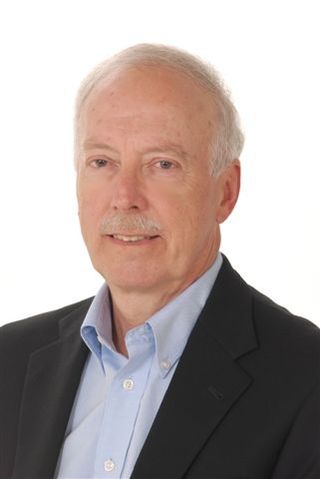
John Frederick MacGregor is a statistician whose work in the field of statistical process control has received significant recognition. His pioneering work was in the area of latent variable/multivariate analysis (MVA) methods applied to industrial processes.

Eduardo Daniel Sontag is an American mathematician, and distinguished university professor at Northeastern University, who works in the fields control theory, dynamical systems, systems molecular biology, cancer and immunology, theoretical computer science, neural networks, and computational biology.

Pramod P. Khargonekar is the Vice Chancellor for Research and Distinguished Professor of Electrical Engineering and Computer Science at the University of California, Irvine. An expert in control systems engineering, Dr. Khargonekar has served in a variety of administrative roles in academia and federal funding agencies. Most recently, he served as Assistant Director for Engineering at the National Science Foundation (2013-2016), and as Deputy Director for Technology at the Advanced Research Projects Agency – Energy. From 2001 through 2009 he was the Dean of the College of Engineering at the University of Florida.

The Gubkin Russian State University of Oil and Gas is a public university in Moscow, Russia. The university was founded in 1930 and is named after the geologist Ivan Gubkin. The university is colloquially known as Kerosinka, meaning 'kerosene stove'.
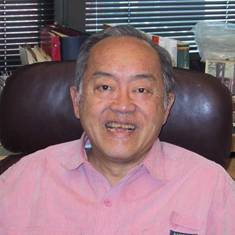
Yu-Chi "Larry" Ho is a Chinese-American mathematician, control theorist, and a professor at the School of Engineering and Applied Sciences, Harvard University.
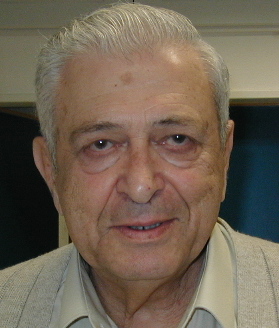
Moshe Zakai was a Distinguished Professor at the Technion, Israel in electrical engineering, member of the Israel Academy of Sciences and Humanities and Rothschild Prize winner.
Larry W. Lake is the Shahid and Sharon Ullah Endowed Chair in petroleum engineering at the University of Texas at Austin. He has served on the faculty of the Hildebrand Department of Petroleum and Geosystems Engineering since 1978. He obtained a B.S.E. from Arizona State University and a Ph.D. from Rice University, both in chemical engineering. He is a world-famous expert in reservoir engineering, geochemistry, fluid flow in porous media and enhanced oil recovery.
Mukul M. Sharma is a professor who holds the W. A. "Tex" Moncrief, Jr. Centennial Chair in the Hildebrand Department of Petroleum and Geosystems Engineering at the University of Texas at Austin. He received a B. Tech. degree from the Indian Institute of Technology Kanpur (1980) and then M.Sc. and Ph.D. degrees from University of Southern California in 1981 and 1985 respectively. He has been on the faculty at the University of Texas for the past 37 years and served as Chairman of the department from 2001 to 2005.
Akhil Datta-Gupta is Regents Professor and holder of L. F. Peterson ‘36 Endowed Chair in Petroleum Engineering at Texas A&M University in College Station, TX (USA). Dr. Datta-Gupta is well known for his contributions to the theory and practice of Streamline Simulation in petroleum reservoir characterization, management and calibration of high resolution geologic models. 3-D streamline simulation is considered to be one of the major developments in petroleum reservoir simulation and performance forecasting. Dr. Datta-Gupta is a co-author of the Society of Petroleum Engineers (SPE) textbook Streamline Simulation: Theory and Practice.
Rui José Pacheco de Figueiredo was an electrical engineer, mathematician, computer scientist, and a professor of electrical engineering, computer engineering, and applied mathematics at the University of California, Irvine.
Alain Gringarten is a French scientist, professor, and former Director of the Center for Petroleum Studies at Imperial College London.
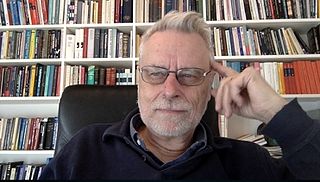
Anders Gunnar Lindquist is a Swedish applied mathematician and control theorist. He has made contributions to the theory of partial realization, stochastic modeling, estimation and control, and moment problems in systems and control. In particular, he is known for the discovery of the fast filtering algorithms for (discrete-time) Kalman filtering in the early 1970s, and his seminal work on the separation principle of stochastic optimal control and, in collaborations with Giorgio Picci, the Geometric Theory for Stochastic Realization. Together with late Christopher I. Byrnes and Tryphon T. Georgiou, he is one of the founder of the so-called Byrnes-Georgiou-Lindquist school. They pioneered a new moment-based approach for the solution of control and estimation problems with complexity constraints.
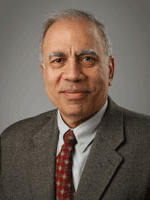
Mohamed Yousef Soliman is a professor and the former chairperson of the department of Petroleum Engineering at Texas Tech University. After working for Halliburton for 32 years, he joined Texas Tech in January 2011. He obtained his bachelor's degree in petroleum engineering from Cairo University in 1971. Having completed his bachelor's degree he came to the United States to continue higher education. He received his master's degree and doctorate degrees, both in Petroleum engineering, from Stanford University in 1975 and 1978 His M. S. Thesis was "Rheological Properties of Emulsion Flowing Through Capillary Tubes Under Turbulent Conditions,"; his PhD thesis, "Numerical Modeling of Thermal Recovery Processes."
Riyaz Kharrat is an eminent Iranian scientist in the field of chemical engineering and petroleum engineering. He is a full professor at Montanuniversität Leoben.
Joseph Atubokiki Ajienka is a Nigerian professor of Petroleum engineering, educational administrator and the seventh vice chancellor of University of Port Harcourt, Rivers State, Nigeria. Under his leadership, the University of Port Harcourt was ranked 6th in Africa and 1st in Nigeria in Research Influence by Times Higher Education (THE).
Fred I. Stalkup is a native of Texas and known for his work in the field of oil and gas production. After graduation from high school in Waco, Texas, he was admitted to Rice University where he earned a Bachelor of Arts in chemical engineering in 1957 and a Ph. D. in chemical engineering in 1961. Stalkup joined the ARCO Oil and Gas Company in 1961 as a senior research engineer. He became director of process research in 1965, senior research advisor in 1985, and distinguished research advisor in 1993. Stalkup remained with the ARCO organization until 2002, when he joined PetroTel Inc, where he is currently Vice President of EOR and Distinguished Engineering Advisor.

Rosalind Ann Archer is a New Zealand academic. She is currently Head of the School of Engineering and Built Environment at Griffith University.
References
- ↑ "TUPREP website"
- ↑ "Reynolds to Succeed Guerrero at TU." Tulsa World.
- ↑ "2013 International Award Winners". ACTE 2013: New Orleans Archived September 16, 2014, at the Wayback Machine